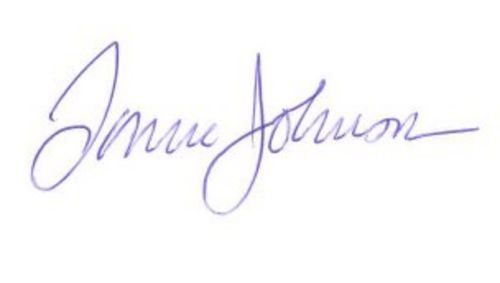Lonnie R. Johnson
Waiting a Lifetime to Give Back: Alumni Respond to Our Call for Support
6 November 2018The beginning of a new program year is also a time to take stock, and I want to take this opportunity to look back and to look ahead with you.
The 2018-19 program year is off to a great start, and we are so pleased to have 75 Austrian and American grantees participating in the Fulbright Program this year, along with a record number of 154 US teaching assistants. The beginning of a new program year is also a time to take stock, and I want to take this opportunity to look back and to look ahead with you.
Around this time a year ago, Fulbright Austria reached out to its alumni and friends with its first-ever annual call for support – Thank Fulbright-Thanksgiving. I am pleased to report that over 250 Austrian and American donors of all ages responded to that call in the course of the past year with gifts large and small. The first donation Fulbright Austria received was €20 from a PhD candidate and recent US grantee, and the second one was from an Austrian alumnus from the class of 1952-53 who said that he “had been waiting a lifetime to give something back to Fulbright.” Fulbright Austria also wants to acknowledge and thank its first major donors: US historian Bruce Pauley, whose stay in Graz in 1963-64 was the foundational experience for his subsequent career (featured in our last newsletter), and Helmut Sohmen, the renowned Austrian corporate executive and industrial leader whose year at Wesleyan University in 1961-62 marked the beginning of a distinguished international career traversing North America, Europe, and Asia.
The costs of international education have increased incessantly over the years, and we want to be able to make Fulbright awards as accessible as possible to those who receive them so that Fulbright grantees continue to have the same kind of opportunities in the future that Fulbright alumni have had in the past. We are indebted to all of our donors for helping us make this happen. Fulbright Austria has established an opportunity fund with over €100,000, which will be used to restore awards that we simply could not fund this past year. We are also valorizing those student grants that have not been increased for decades to better cover real costs, and in the coming weeks we will be featuring the grantees benefiting from alumni support as well as donors making this possible in our social media.
Last spring, Fulbright Austria also reached out to its US alumni to advocate with their congressional representatives to restore funding for the program. Since 2010, a combination of cuts and inflation have brought down funding for the Fulbright Program by 19%, and there is no relief in sight: the initial federal budget proposal for the fiscal year 2019 advanced by the administration included a 71% cut to Fulbright. The appropriations committees in both the Senate and the House have passed bipartisan resolutions to restore global funding for Fulbright to $240 million – flat funding at the level of the previous fiscal years – but the federal budget has not been signed into law yet, as has been the case in so many years in the recent past. The ongoing pressure on the Fulbright Program is real, and ongoing advocacy for the program is of utmost importance.
Finally, I am pleased to report that the Austrian government and the Bureau of Educational and Cultural Affairs at the Department of State have acknowledged the good work Fulbright Austria is doing by valorizing their core contributions to the Austrian-American program for the first time in many years. US and Austrian government core allocations are primarily used to fund Fulbright Austria’s infrastructure, administration, outreach, and orientation programming. However, we continue to rely on our networks of public and private institutional partners on both sides of the Atlantic to fund the lion’s share of our Fulbright awards and are so appreciative that our donors have responded so generously to our first call for support. Fulbright Austria continues to provide life-changing opportunities for a new generation of Fulbright grantees.
Many thanks for your ongoing support!
